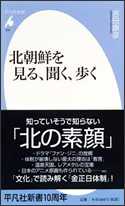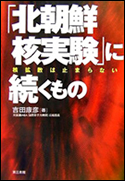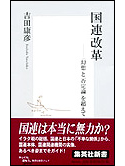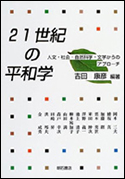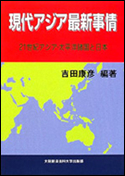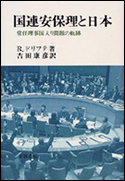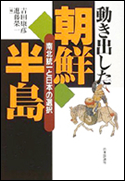2006年6月01日
【8】Reconciliation of Mindan and Chongryon――two rival groups of Korean Residents in Japan(June 2006)
HISTORIC MEETING
It was a historic move for Japan and Korea, both North and South. Two rival organizations of Mindan-the pro-Seoul group of Korean residents and Chongryon-the pro-Pyongayang body of Korean residents in Japan-have put an end to their rivalry and animosity in their history for the past half a century.
The top leaders of the two groups, Mr. Ha Byeong Ok of Mindan and Mr. So Man Sul of Chongryon held a top meeting and issued a joint statement in Tokyo on 17 May 2006, confirming their reconciliation and future cooperation in their activities throughout Japan. Mr. Ha visited the Headquarters of Chongryon in downtown Tokyo for the first time, greeted by Mr. So and other senior officials and women dressed in their traditional costume.
The joint statement says that the two groups agree to work together to overcome their differences and maintain contact to cooperate for ethnic unity to improve the status of Korean residents in Japan. It was the first meeting in the history of the two groups, which grew out of a split in their original body, the General Korean Association, formed in 1945, the year of Japan's surrender to the Allied Forces.
The move was welcomed by the South Korean Government and the media in Seoul, which has been promoting measures for detente with its neighbors in the North, while it was reported only briefly by the Korean Central News Agency in Pyongyang without comment. However, the decision must have been approved undoubtedly by the top leaders in Pyongyang in advance.
BACKGROUND
There were more than two million Koreans left behind when, with the defeat of the imperial Japan at the end of World War Two, their homeland, Korea, was liberated from the yoke of Japan's colonial rule for the past 35 years.
Reflecting the division of North and South Korea in their homeland, the pro-Seoul Korean Residents Union in Japan (Mindan) split off from the main group in 1946 to support the South which had been occupied by the U.S. Forces to counter communist expansion in the Far East, and in 1955, the original group became the General Association of Korean Residents in Japan (Chongryon) to officially represent the North which had already been ruled by Mr. Kim Il Sung with support from Moscow.
Since then, bitter hostilities and animosities had arisen between the two organizations, as in the Korean Peninsula itself. The Korean War erupted in 1950 and lasted for three years, killing more than one-million Koreans with each other in the north and south, and leaving 10-million separated family members dividing the demarcation line along the 38th parallel.
The reconciliation move came rather belatedly in Japan, as in their homeland, Korean Peninsula, there have been political and economic rapprochement toward a peaceful reunification, especially since the first summit meeting between President Kim Dae Jung of South Korea and General Secretary Kim Jong Il of North Korea in Pyongyang in June 2000.
Since then, in Japan as well, Mindan and Chongryon have been holding unofficial meetings and joint events such as charity concerts and cherry-blossom viewing parties in local chapters on a voluntary basis. Chongryon members have been allowed to visit South Korea, for humanitarian reasons, to pay tribute to the tombs of their ancestors.
Most of the Korean residents in Japan have their native places in the South, and a very few in the North. For all Korean residents, their homeland is one, and their ethnic and cultural identity is one, though there are two divided states.
Many Mindan members raised funds in humanitarian assistance for the victims of an extensive flood which hit North Korea in 1995 and for those killed and injured in a locomotive explosion incident also in the North in 2004. The funds, valued at more than one-million Japanese yen in each case, were delivered to the victims through Chongryon.
Against this background, it was in February 2006, when Mr. Ha, reformist, was elected Chairman of Mindan, defeating his rival conservative candidates, that reconciliation of the two competing groups became a real agenda for consideration. Upon his election, Mr. Ha expressed his desire to meet his Chongryon counterpart in their official capacity. Mr. Ha himself, once a temporary student in the pro-Pyongyang Chosun University in Tokyo, was an active member to democratize South Korea during the 1970s and 80s by putting an end to the military dictatorship in the South. Now, South Korea has been democratized and North-South cooperation is in steady progress.
There are a total of 600,000 Korean residents in Japan, two thirds belonging to Mindan, and less than one third to Chongryon. The rest belongs to neither of the two.
In recent years, an average 10,000 Koreans, especially of the younger generation, have been naturalized annually in Japan as Japanese. A main reason is North Korea's abduction of Japanese nationals, which has caused strong anti-Korean feelings among Japanese citizens in the Japanese society. Many young Koreans, born in Japan in the third or fourth generations, speak only Japanese with their mentality as being Japanese. In addition, they look exactly like Japanese.
COMMON SENSE OF CRISIS
Another reason for the reconciliation is a common sense of crisis over the future of the two organizations. An increasing number of Korean residents, especially those of younger generations, have been naturalized into Japanese, losing their ethnic and national identity. They tend to marry Japanese. At the same time, those of the first generation, who came to Japan, either forcibly or voluntarily during Japan's colonization of their homeland especially during the 1940s, have been decreasing in number with old age.
in this sense, pro-Pyongyang Chongryong, though smaller in scale and membership, has been more keen and aggressive to retain Koreans' national identity by promoting ethnic education for children. Chongryon discourages its members from marrying Japanese, and sticks to Koreans' right of ethnicity. Chongryon, cautioned against being integrated into the Japanese society, is opposed to use the right to vote or to be voted in national and local elections in Japan.
On the other hand, Mindan maintains that its members be granted the right to vote and to be voted in local elections, as in West European countries, where long-term foreign residents have suffrage in local and regional levels.
The sense of crisis is stronger in the case of Chongryon, which has been the target of sharp criticism and attacks from Japanese citizens over their alleged involvement in the abduction case. The Japanese police report that some Chongryon members assisted intelligence agents from Pyongyang in kidnapping a number of Japanese nationals as prospective teachers of Japanese language and customs to train North Korean agents in preparation for their illegal entry into the South for espionage purposes under the guise of Japanese businessmen. Such disadvantage of Chongryon in the Japanese society might be weakened with its future integration with Mindan.
Some local chapters of Mindan, in Niigata, Nagano and Chiba, are quite critical of their headquarters' decision to reconcile with Chongryon. They decided not to follow Chairman Ha's policy. To accommodate such negative reactions in local chapters, Mindan has decided not to organize a joint delegation to attend a commemorative ceremony to mark the sixth anniversary of the first north-south summit on 15 June 2006, and the 61st anniversary of their emancipation from Japan's colonization on 15 August 2006. Nevertheless, such negative reactions are expected to be temporary and short-lived.
An overall trend toward peaceful reunification of divided Korean residents in Japan is presumed to be irreversible, as in the Korean Peninsula itself. With nearly two decades since the collapse of the Cold War structure, nothing could prevent the Korean people from getting reunified in whatever form, either in a confederation or a commonwealth. The Kim Jong Il regime in the North is still an isolated state under dictatorship, but open-market mechanism has been implanted steadily, though on a limited scale, under the so-called economic reform with investments from the South as well as China.
【Report submitted to Mr.Edward Baker in June 2006】


